- Home
- Diana Wynne Jones
Freaky Families Page 4
Freaky Families Read online
Page 4
“I want to go home too,” Simon said uncomfortably.
Two of the monkeys had decided that Auntie Bea’s umbrella was fun. They tried to take it up the tree with them. Auntie Bea’s hand appeared around the edge of it, slapping.
“Don’t be so impatient, dears. I’m nearly ready.”
The monkeys had barely time to chitter angrily before that island tossed them aside too. Auntie Bea’s hut was suddenly in the middle of a neat flower bed. Debbie was rolling in red geraniums. There was a great deal of noise all around, but it was not water. It sounded like traffic. Simon jumped to his feet. He was on a mound surrounded by cars and lorries. Faces were pressed against the windows of a passing bus, staring at him.
“We’re on a traffic island now,” he said. “In the middle of a roundabout.”
Nancy stood up too. “What will it think of next? I say, Honey’s not here!”
“Ready, dears,” called Auntie Bea. She stood up out of her hut in her bathing suit. Simon was gazing around for Honey, but even he was distracted by the sight. Auntie Bea was gigantic. The flowers looked pale beside her. She was like an enormous beach ball, only brighter than a beach ball has any right to be. The people going by in cars could not take their eyes off her. The bus ran into the kerb. Two cars drove up on to the flower beds. Brakes squealed and metal clanged all around the roundabout.
Only Debbie was not distracted by the sight. She was fond of bright colours. “This is the roundabout at the end of our road!” she said.
“Quick!” said Nancy.
“Run!” said Simon. “Before she says anything.”
They raced down among the flowers. Behind them, Auntie Bea hooted, “I do think cars should be banned on beaches,” and vanished from sight – which caused a further pile-up of cars.
Nancy, Simon and Debbie dodged between the cars and ran on, up their road and into their own house.
“Why are you back so soon?” asked Mrs Pearson. She did not seem to have gone to the dentist. “Where’s Auntie Bea?”
She could not understand what had happened. All Debbie could think of was Teddy, last seen floating in the air over a soldier. All Simon could think of was Honey, last seen growling at an alligator. All Nancy could think of was that she was never going near another island – of any kind – as long as she lived. Neither Mr nor Mrs Pearson grasped that something truly odd had happened until the phone began to ring.
The first caller was very polite and very high up in the Army. They had Teddy, he said, on an island somewhere in Scotland. Could any of the Pearsons please reveal the secret formula that made Teddy float in the air? Was it anything to do with the strawberry juice Teddy was soaked in? When nobody could tell him what made Teddy float, the high-up man said that it certainly had military importance, and would Debbie mind if they kept Teddy for analysis? They would send a new teddy.
“I want my Ted!” Debbie shouted, but the Army said it was impossible.
The next person to phone was a Swiss Mountain Guide, who had found the beach ball on top of a mountain, complete with the label giving their address. He asked if they wanted it back. They never did answer that, because a policeman called just then, looking rather grim and asking to speak to Auntie Bea. She had caused a Breach of the Peace, he said, and left her radio in the middle of Silas Street roundabout. But nobody, of course, knew where Auntie Bea was by then.
Almost straightaway, there was a puzzled phone call from Iceland. A trawler captain had found a bag of Pearson sweaters floating on an iceberg and wondered if there were any survivors from the wreck. Mr Pearson had just sorted that one out when someone telephoned all the way from South America. His English was not very good, but he seemed to be saying that the water had ruined the battery in the electric torch. But he wanted to assure them that the buckets and spades were quite safe and very useful.
“Ask about Honey,” said Simon. But the person in South America had not seen a dog, nor even a satisfied-looking alligator.
“Where’s Auntie Bea, though?” Mrs Pearson kept asking. It was soon clear that Auntie Bea was still travelling. The Foreign Office phoned next. There was, they said, a mysterious complaint from the Russian Embassy. A basket full of jelly and sand in yogurt cups, with the Pearsons’ address on it, had somehow appeared on the conning tower of a Russian submarine. The Russians were holding it for analysis. The Foreign Office wanted to know if they would find anything important in the yogurt cups.
“I don’t think so,” said Mrs Pearson weakly. “They – they didn’t find my sister as well, did they?”
But Auntie Bea had not been heard of. Nor had she been seen by an excited lady in Greece, who phoned next. This lady wanted the Pearsons to know that she was not so poor that she could not find two dozen hard-boiled eggs for herself, thank you. And she was throwing away the bag of clothes. They were too big for anyone on the island. She rang off before anyone could try to explain.
The American Embassy rang next. Auntie Bea’s umbrella had been found in the sea off Honolulu. They wondered if Auntie Bea had been drowned. So did the Pearsons. But since the next two calls were from Sweden and Japan, it began to look as if Auntie Bea was still being jerked from island to island.
Quite late that night, the London Zoo phoned. “It’s taken us all this time to trace you,” they said, rather injured. “The address fell off on our monkey island. How did you come to leave your dog there, anyway? The monkeys were trying to play with the puppies.”
Mr Pearson said – a little wildly – that he could explain everything. Then he found that the zoo wanted him to collect Honey and her six new puppies at once. They were in the Children’s Zoo. Simon was greatly relieved. He went with his father to fetch Honey, and did not mind in the least when Honey was carsick, though Mr Pearson did.
Meanwhile the others were still answering the telephone, and there was still no news of Auntie Bea. They forgot what a trial Auntie Bea had been and became worried. They had tender, troubled thoughts about where she could be. Nancy feared she was marooned on a desert island like Robinson Crusoe, all alone in her bathing suit. Debbie said she was somewhere where they spoke quite another language. Mrs Pearson wrung her hands and said she knew Bea was in China, under arrest.
Three days later, Auntie Bea rang up herself. “You’ll never guess, Tom!” she hooted. “I’m in the Bahamas. I’ve no idea how I got here, and I’ve had to borrow money for the phone. You needn’t bother to come and get me, Tom. I can manage.”
Mr Pearson thought of all the phone calls, and Debbie still in tears about Teddy and – very crossly – about Honey sick in his clean car. “I’m glad you can manage, Bea,” he said. “Come and see us when you get home.” And he rang off.
About the Author
Diana Wynne Jones’ first children’s book was published in 1973. Her magical, humorous stories have enthralled children and adults ever since, and she has inspired many of today’s children’s and fantasy authors. Among Diana’s best loved books for older children are the Chrestomanci series and the Howl books. Her novel, Howl’s Moving Castle was made into an award-winning film. She was described by Neil Gaiman as “the best children’s writer of the past 40 years”.
Copyright
First published in Great Britain by HarperCollins Children’s Books in 2013
HarperCollins Children’s Books is a division of HarperCollinsPublishers
77–85 Fulham Palace Road,
Hammersmith, London W6 8JB
www.harpercollins.co.uk
Copyright © Diana Wynne Jones 2013
Cover design © HarperCollinsPublishers 2013; Illustrations © Marion Lindsay 2013
Diana Wynne Jones asserts the moral right to be identified as the author of this work
A catalogue record for this book is available from the British Library
All rights reserved under International and Pan-American Copyright Conventions. By payment of the required fees, you have been granted the non-exclusive, non-transferable right to access and read the te
xt of this e-book on-screen. No part of this text may be reproduced, transmitted, down-loaded, decompiled, reverse engineered, or stored in or introduced into any information storage and retrieval system, in any form or by any means, whether electronic or mechanical, now known or hereinafter invented, without the express written permission of HarperCollins.
Source ISBN: 9780007507474
Ebook Edition © August 2013 ISBN: 9780007507528
Version: 2013-09-07
About the Publisher
Australia
HarperCollins Publishers (Australia) Pty. Ltd.
Level 13, 201 Elizabeth Street
Sydney, NSW 2000, Australia
http://www.harpercollins.com.au/ebooks
Canada
HarperCollins Canada
2 Bloor Street East - 20th Floor
Toronto, ON, M4W, 1A8, Canada
http://www.harpercollins.ca
New Zealand
HarperCollins Publishers (New Zealand) Limited
P.O. Box 1
Auckland, New Zealand
http://www.harpercollins.co.nz
United Kingdom
HarperCollins Publishers Ltd.
77-85 Fulham Palace Road
London, W6 8JB, UK
http://www.harpercollins.co.uk
United States
HarperCollins Publishers Inc.
10 East 53rd Street
New York, NY 10022
http://www.harpercollins.com

 Fire and Hemlock
Fire and Hemlock Reflections: On the Magic of Writing
Reflections: On the Magic of Writing The Game
The Game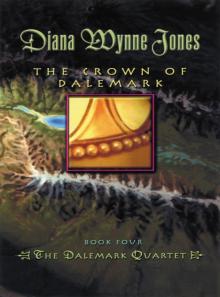 The Crown of Dalemark
The Crown of Dalemark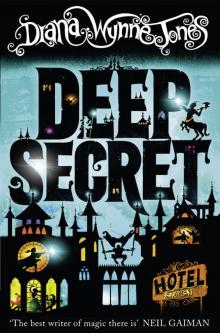 Deep Secret
Deep Secret Witch Week
Witch Week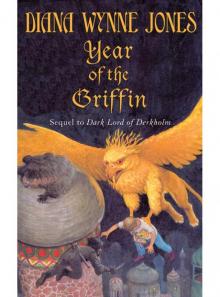 Year of the Griffin
Year of the Griffin Wild Robert
Wild Robert Earwig and the Witch
Earwig and the Witch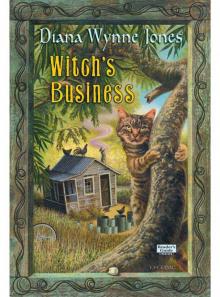 Witch's Business
Witch's Business Dogsbody
Dogsbody Caribbean Cruising
Caribbean Cruising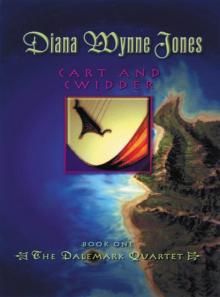 Cart and Cwidder
Cart and Cwidder Conrad's Fate
Conrad's Fate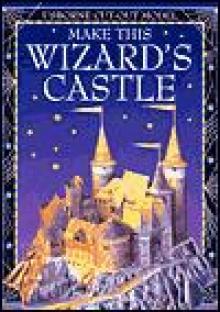 Howl's Moving Castle
Howl's Moving Castle The Spellcoats
The Spellcoats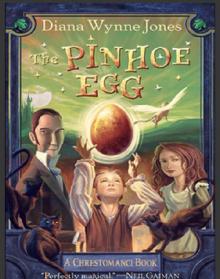 The Pinhoe Egg
The Pinhoe Egg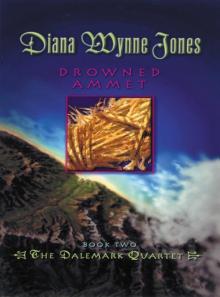 Drowned Ammet
Drowned Ammet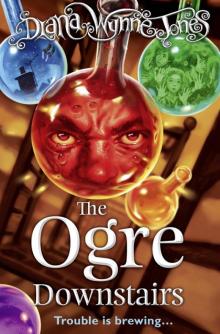 The Ogre Downstairs
The Ogre Downstairs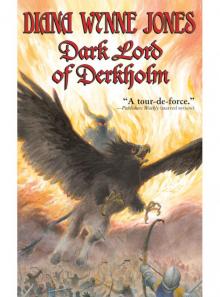 Dark Lord of Derkholm
Dark Lord of Derkholm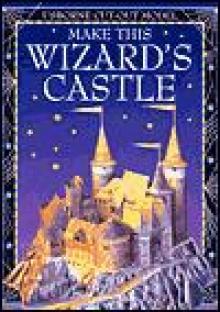 Castle in the Air
Castle in the Air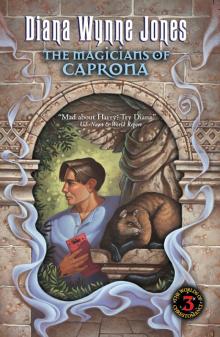 The Magicians of Caprona
The Magicians of Caprona A Tale of Time City
A Tale of Time City The Lives of Christopher Chant
The Lives of Christopher Chant The Magicians of Caprona (UK)
The Magicians of Caprona (UK)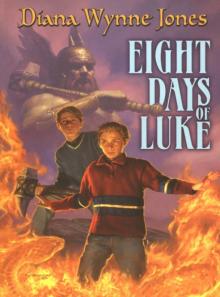 Eight Days of Luke
Eight Days of Luke Conrad's Fate (UK)
Conrad's Fate (UK)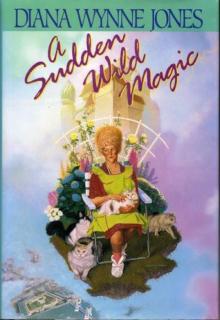 A Sudden Wild Magic
A Sudden Wild Magic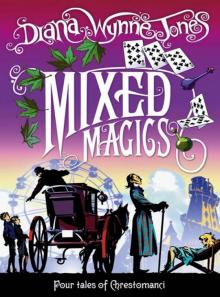 Mixed Magics (UK)
Mixed Magics (UK) House of Many Ways
House of Many Ways Witch Week (UK)
Witch Week (UK) The Homeward Bounders
The Homeward Bounders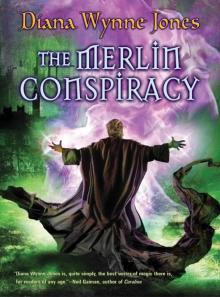 The Merlin Conspiracy
The Merlin Conspiracy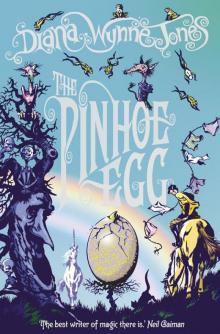 The Pinhoe Egg (UK)
The Pinhoe Egg (UK)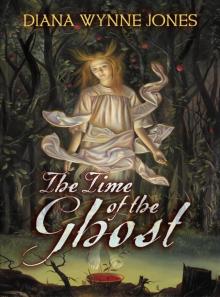 The Time of the Ghost
The Time of the Ghost Hexwood
Hexwood Enchanted Glass
Enchanted Glass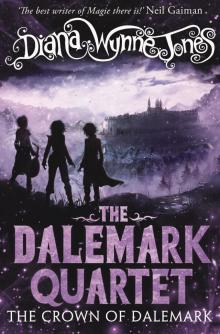 The Crown of Dalemark (UK)
The Crown of Dalemark (UK)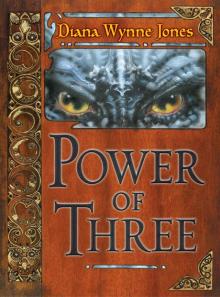 Power of Three
Power of Three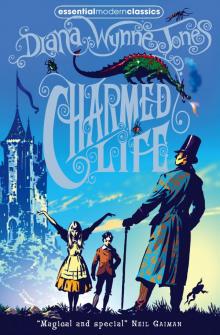 Charmed Life (UK)
Charmed Life (UK)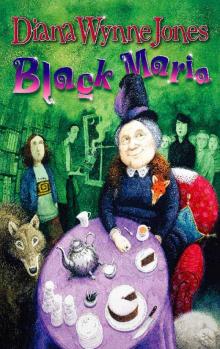 Black Maria
Black Maria The Islands of Chaldea
The Islands of Chaldea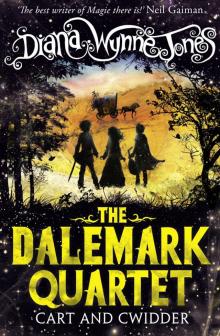 Cart and Cwidder (UK)
Cart and Cwidder (UK)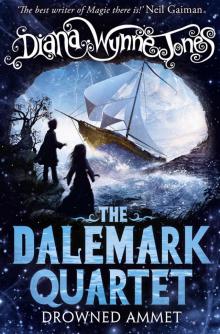 Drowned Ammet (UK)
Drowned Ammet (UK) Charmed Life
Charmed Life The Spellcoats (UK)
The Spellcoats (UK)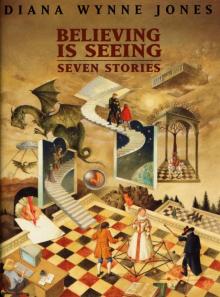 Believing Is Seeing
Believing Is Seeing Samantha's Diary
Samantha's Diary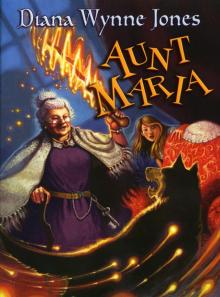 Aunt Maria
Aunt Maria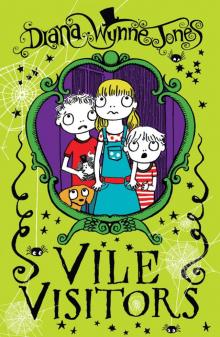 Vile Visitors
Vile Visitors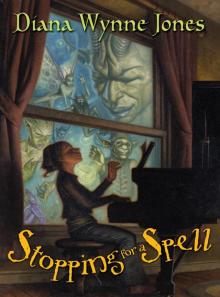 Stopping for a Spell
Stopping for a Spell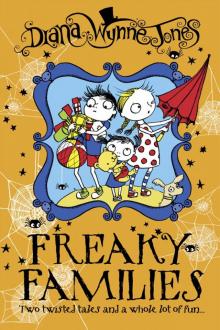 Freaky Families
Freaky Families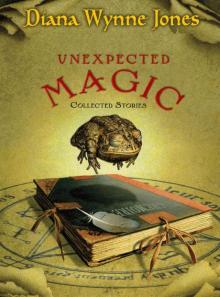 Unexpected Magic
Unexpected Magic Reflections
Reflections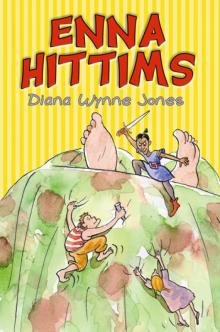 Enna Hittms
Enna Hittms Mixed Magics: Four Tales of Chrestomanci
Mixed Magics: Four Tales of Chrestomanci